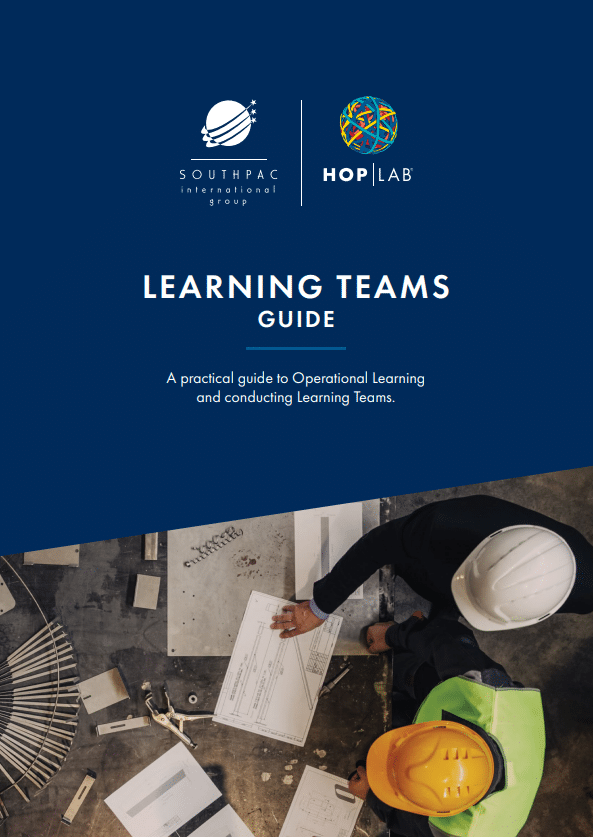Learning Teams
Learn how work really happens – and develop worker-driven solutions to improve it.
HOP recognises that workers are the experts in how work gets done – and how they can adapt to the ever-changing complexities of it. Learning Teams allow your people to provide insights into their work and be part of ways to improve it. They are a method to learn about operations and understand how people and systems perform within an organisation’s context.
What do Learning Teams provide?
A Learning Team facilitates conversations with field experts to share their insights, experiences, and stories about their work. The result is a holistic understanding of how they navigate everyday operations, with a positive focus on building system resilience.
Naturally, the context-rich information gained from this process identifies the real problems. In other words, where systems may be brittle, balanced against what is working well. As a result, fostering decisions and actions that are relevant to building system resilience. They provide a collaborative approach to improve and enhance operations, capacity, and rigour around critical controls. Without a doubt, the true strength of these discussions is that the focus is on normal operations.
This can be useful in incident response activities. However, it can also be used at any time to learn. It provides a proactive means of safety management.
Learning Teams also generate reports and actions much like traditional safety activity methods. The real benefits, however, are seen in the engagement and commitment generated. Unquestionably, there is a basic human need to be heard, understood, and included. Learning Teams provide a platform for this to happen. The stories shared post-Learning Team sessions can be transformational. The depth of learning and insight from the process enables better comprehension of problems, which in turn, creates effective solutions and allows for informed decision-making.
What do Learning Teams provide?
A Learning Team is a facilitated conversation with field experts to share their insights, experiences and stories about their work. The outcome is a holistic understanding of how they navigate every-day operations, with a positive focus on building system resilience.
The context-rich information gained from this process identifies the real problems, where systems may be brittle and what is working well, which fosters decisions and actions that are relevant to building system resilience. Learning Teams provide a collaborative approach to improve and enhance operations, capacity and rigour around critical controls. The true strength of Learning Teams is that the focus is on normal operations.
While this can be useful in incident response activities, they can be used at any time to learn, providing a proactive means to safety management.
Learning Teams can generate reports and actions much like traditional safety activity methods, however the real benefits are seen in the engagement and commitment generated. There is a basic human need to be heard, understood and included. Learning Teams provide a platform for this to happen, and the stories shared post-learning team sessions can be transformational. The depth of learning and insight from the process enables better comprehension of problems, creating effective solutions and allows for informed decision making.
Getting Started
It’s important to have a foundational understanding and acceptance of HOP principles before starting Learning Teams in your organisation. Successful Learning Teams involve leadership sponsorship and an impartial position of the Facilitator – providing an environment in which frontline workers can share openly. There are a few ways you can commence a Learning Teams approach.
TRAINING
FACILITATION AND COACHING
Whether you are looking for long-term support with Learning Teams or short-term assistance while your own team builds confidence and capability, our experienced HOP team can facilitate Learning Teams at your organisation. This can either be as facilitation or co-facilitation with internal facilitators. Having the involvement of an independent consultant can:
- Provide an impartial perspective. This significantly will benefit the remaining curious and limit the effects of biases and preconceptions.
- Gain insights that may not be readily shared internally. (This is particularly the case in the early stages of HOP and Learning Teams integration)
- Coach internal facilitators to learn and improve by doing – When they are new to the process, and as they become comfortable with the approach
- Share insights on the successes and hurdles from their experience.


